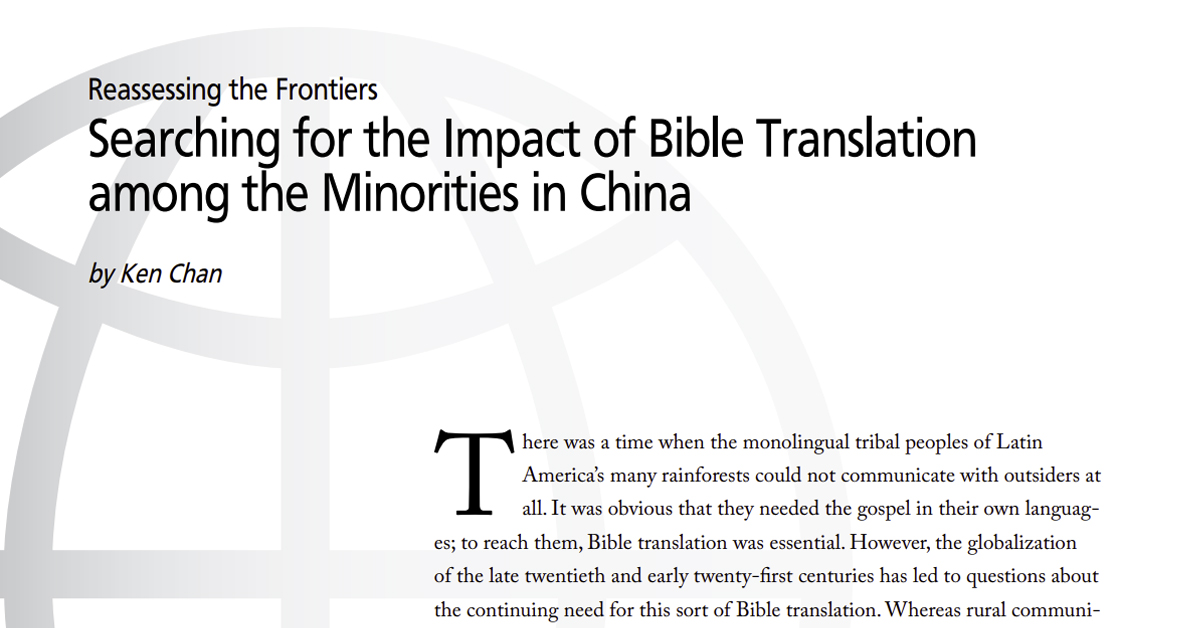
Historically, Bible translation has been an extensive, even at times protracted, process. Translation projects have traditionally included research (linguistic and anthropological); translations (oral and written); literacy (where implementation is viable); and scripture use (both teaching and discipling.) Is all this effort still necessary among minority peoples who are daily becoming more at home in the dominant trade languages? What, then, is the need for Bible translation now?
In this article, Ken Chan argues that “Bible translation is not the end goal, but a means to disciple minority language communities”.
…a strategy that relies solely on oral translation is not conducive to discipleship. The assumption that Chinese minority Christians who are bilingual can translate the gospel message spontaneously into their native tongues underestimates the difficulty.
…more areas need Bible translation than one thinks. It’s incorrect to say that urbanization in China will clear out its villages. Yes, the large cities in China are growing larger; but, there is now a trend where third or fourth tier cities are depopulating because they offer few benefits and impose a higher cost of living compared to villages. Unskilled villagers who had gone there to look for seasonal work now make more money back in townships as micro business owners.



